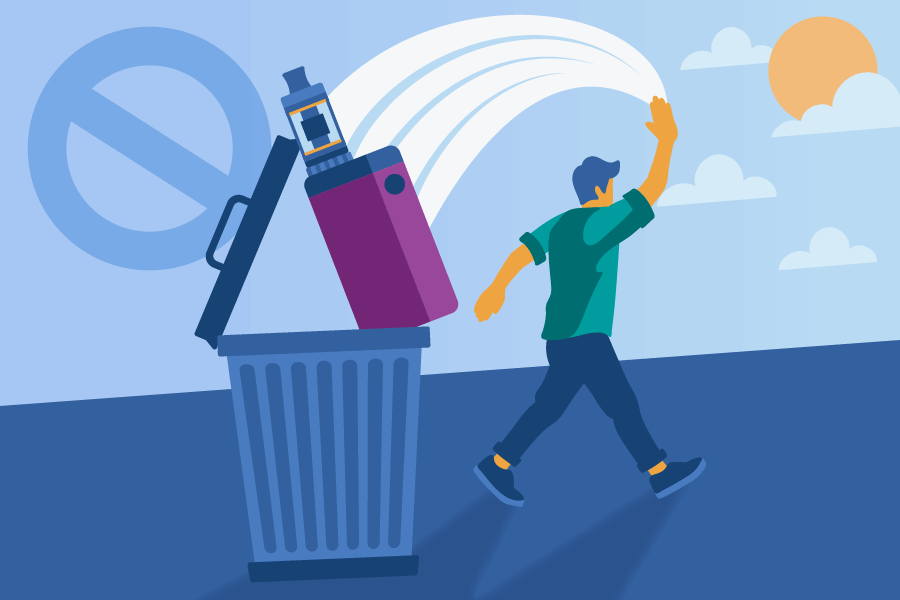While the stigma for drug and alcohol addiction suggests otherwise, addiction can affect anyone. An addict doesn’t look like the jobless, unkempt person many people imagine. People in the throes of addiction can be high-functioning and lead a successful life. They can be our friends, loved ones, and parents.
It’s important to listen and spread awareness about addiction. If substance use disorder affects your loved one, you want them to have the resources and support to get help. In this article, we will explore how to cope with your parent’s or family member’s addiction in a healthy, supportive way.
Important Note: Child of Addict Parent
While the topic of dealing with a parent’s addiction is mentioned frequently on this page, it’s crucial to make it clear that all experiences are not the same. Being the child of an addicted parent while dependent on that person can limit a child’s options for getting help or support. Age, ability, and many other situational factors are often involved in the decision to take action as suggested in the below tips.
Comprehensive Levels of Care
No matter where you are in your recovery journey, our levels of care are personalized to your unique needs.
Addiction and Family: How to Know if Someone Is Using Drugs
Many small details could make you think your loved one is using or addicted to alcohol or drugs. Most indications of addiction come from a change in the person’s normal routine, personality, and physical appearance.
Changes in Behavior
- Quitting or losing their job
- Changed relationships with friends and family
- Going out more often than normal
- Acting secretive or paranoid
- Hyperactive or unable to focus
- Experiencing money issues
- Mood changes quickly and aggressively
Changes in Physical Appearance
- Poor hygiene
- The smell of smoke, alcohol, or other unusual smells
- Sudden change in weight
- Slurred or incoherent speech
- Needle marks on arms or legs
- Lack of balance and coordination
Find the Right Facility for Your Needs
Explore our treatment center locations and find an option that works for you.
Tips for coping with a parent or family member’s addiction
It can be overwhelming to find out your parent or family member is using drugs or alcohol and has an addiction. The effects of drug use on the family can be deeper and more severe than most realize. Whether the process of discovery was short or over years, it’s not too late to support your loved one and get them the help they need.
Seek to Understand
As with any person dealing with addiction, it is important to listen and be a nonjudgmental support figure. You’ve probably witnessed addiction in your life at some point before this, but try to remember that each story is different. The best thing you can do is listen to your loved one and try to understand how they are feeling.
Substance Use Disorders (SUDs) affect both the body and mind, so reality can be skewed for a person with addiction. There may be paths to getting clean that you can see are available to your loved one, but it’s important to understand what they’re feeling before giving suggestions.
Education about addiction is another way you can help. Researching the specific substance your loved one is addicted to can help you better understand their situation. There are support groups for families of addicts that offer both education and a safe place to share openly about difficulties so that you can be level-headed in front of your loved one.
Establish a Support System
Addiction is a very isolating disease, and it’s common for someone in the depths of addiction to think they are completely alone. As an outsider, you may want to ask why your loved one hasn’t told more friends and family about their struggle. Keep in mind they may not be ready to tell other people, but it’s okay to encourage them to open a dialogue with other trusted individuals.
Instead of sharing your loved one’s story with people you think should know, talk to them. Tell your loved one about the benefits of establishing a support system around them and let them choose who they’d like to tell about their battle with substance use. Remember, they are probably fearing judgment from others.
This way, if they want to go to treatment or try to stop using on their own first, supportive friends and family can be present to encourage and help your loved one find help. Don’t underestimate the impact of a positive, powerful sentiment like “We care about you and want you to get help.”
Don’t Wait
According to DrugFree.org, “Movies, books, and magazines often portray people who ‘hit bottom’ before they can be helped. However, this representation is a myth. People do not need to bottom out to be helped. Research shows that early identification of the problem is a much more effective solution for substance use problems.”
Don’t wait until it’s too late—recognize the above warning signs of addiction and get involved in your loved one’s life for the better. No matter what step of their journey your loved one is in, they need an encouraging and nonjudgmental figure in their life. Work with your loved one to look into treatment options, recovery stories, and long-term mental health programming to keep them on track.
Get Help Coping With Addiction in the Family at Sandstone
Sandstone Care offers medical detox to all ages and residential or outpatient treatment to teens and young adults. Learn more by visiting our website, or give our Admissions team a call today.







